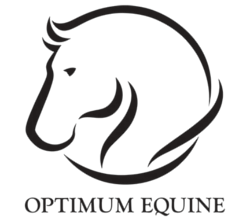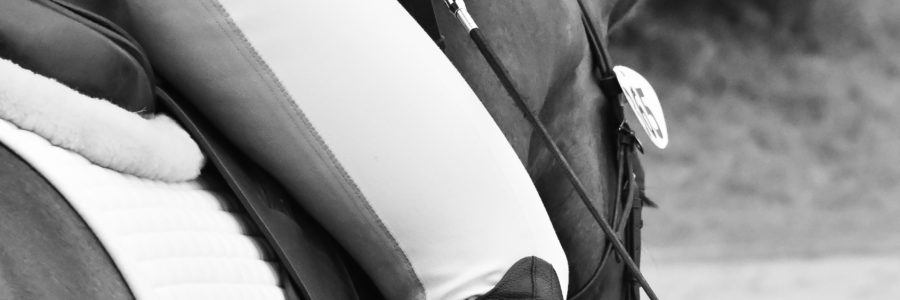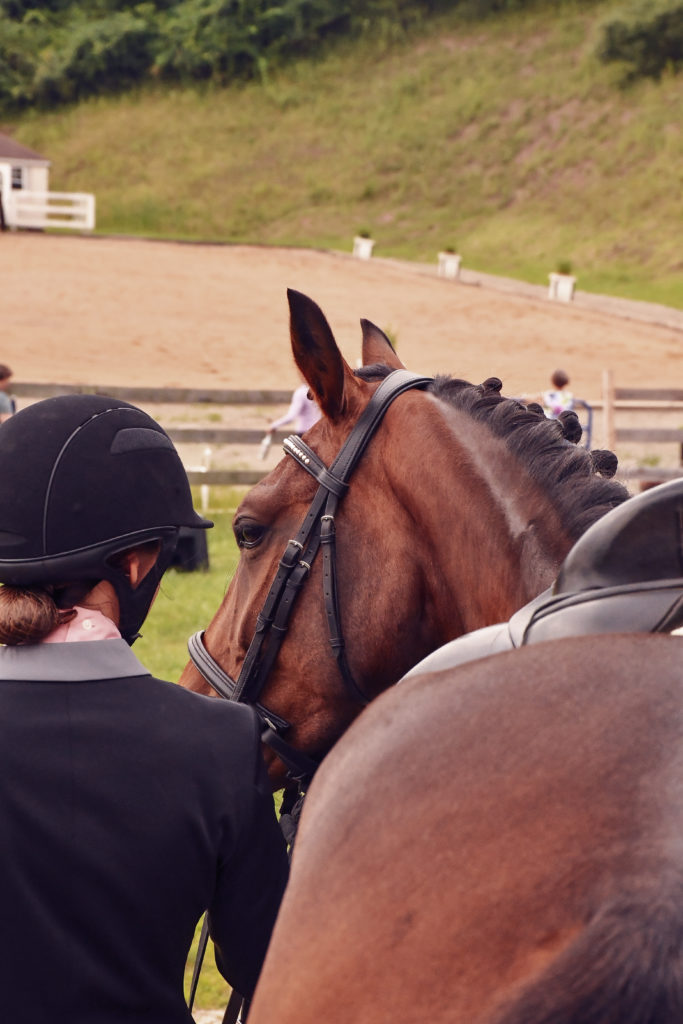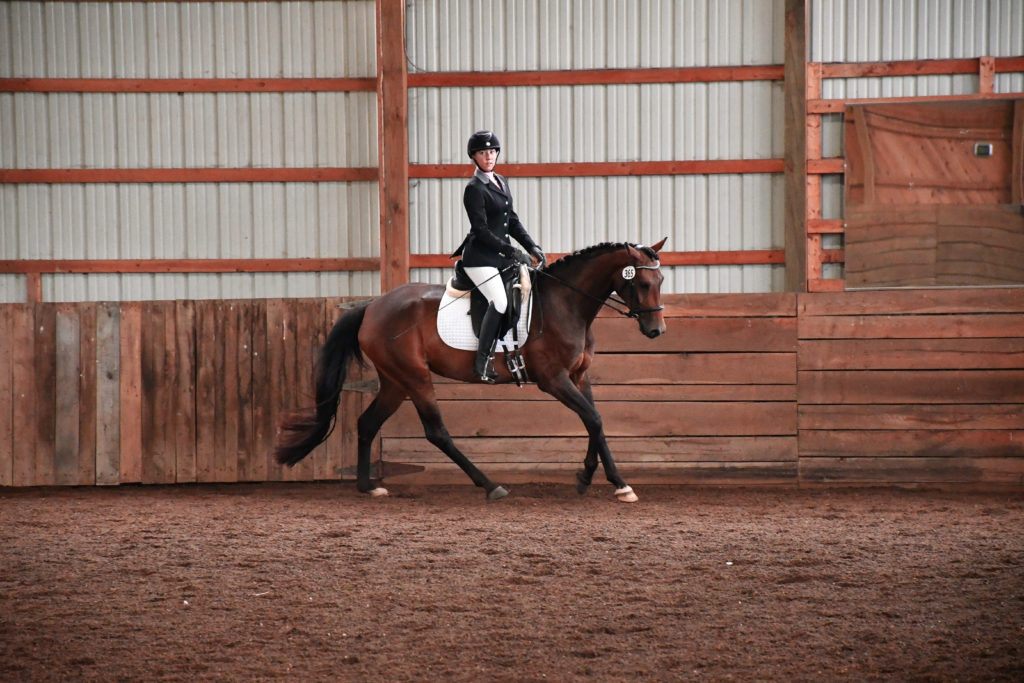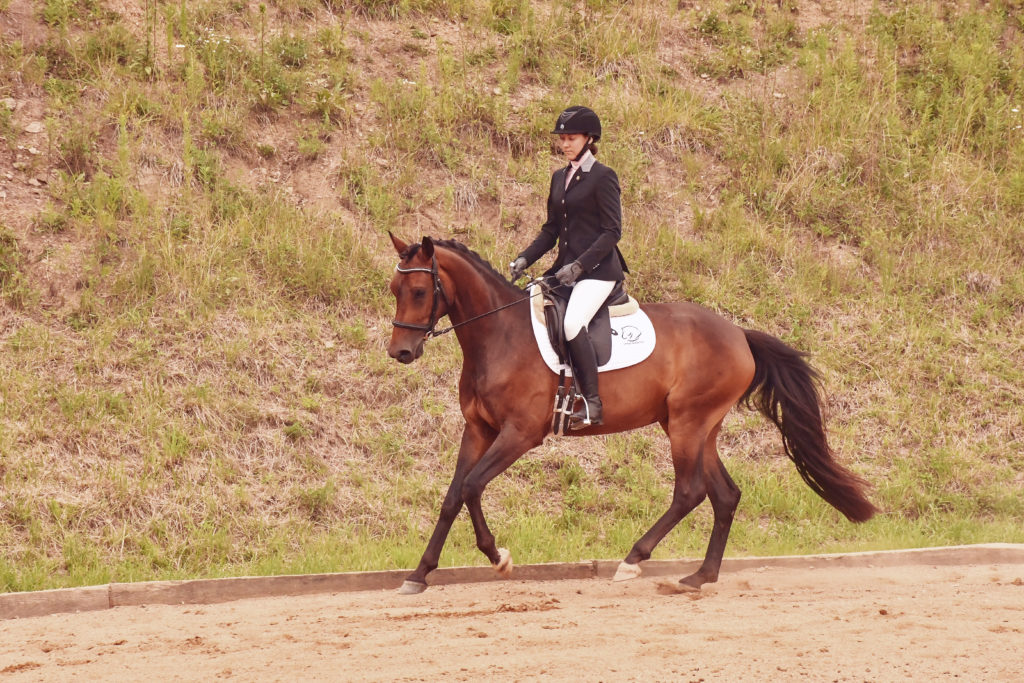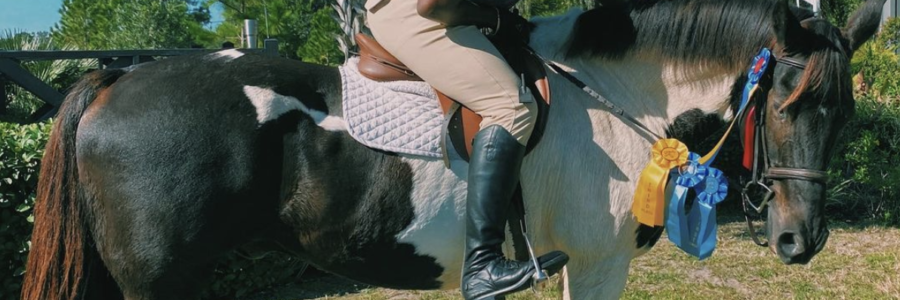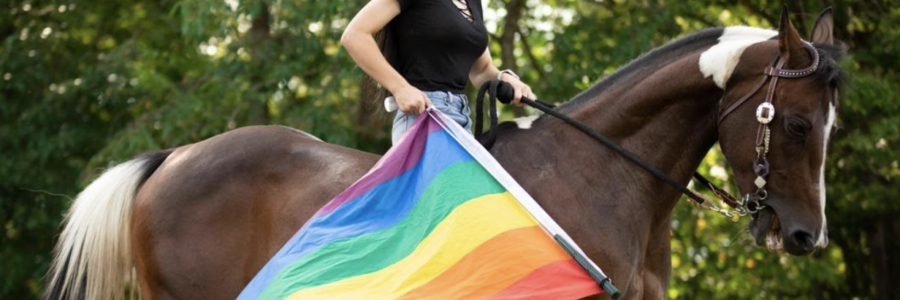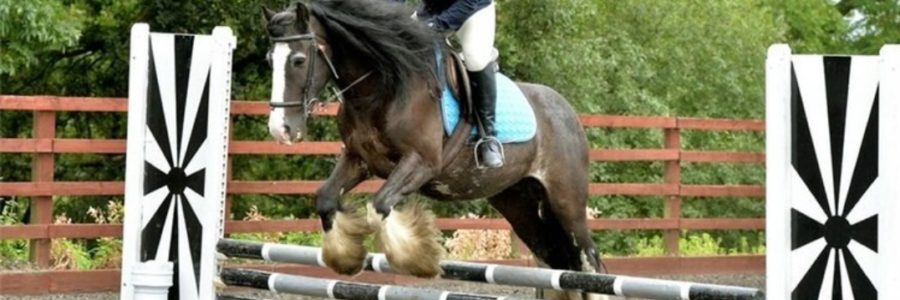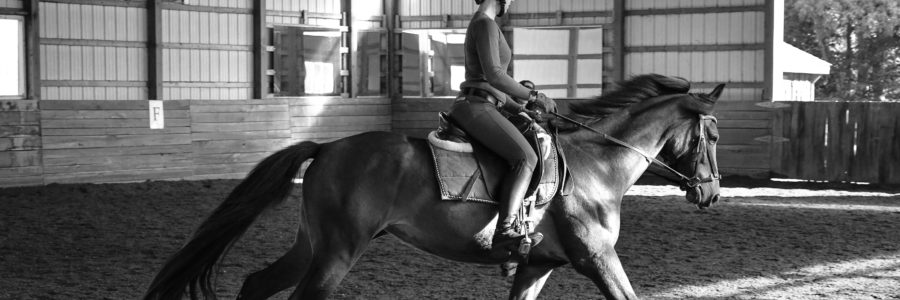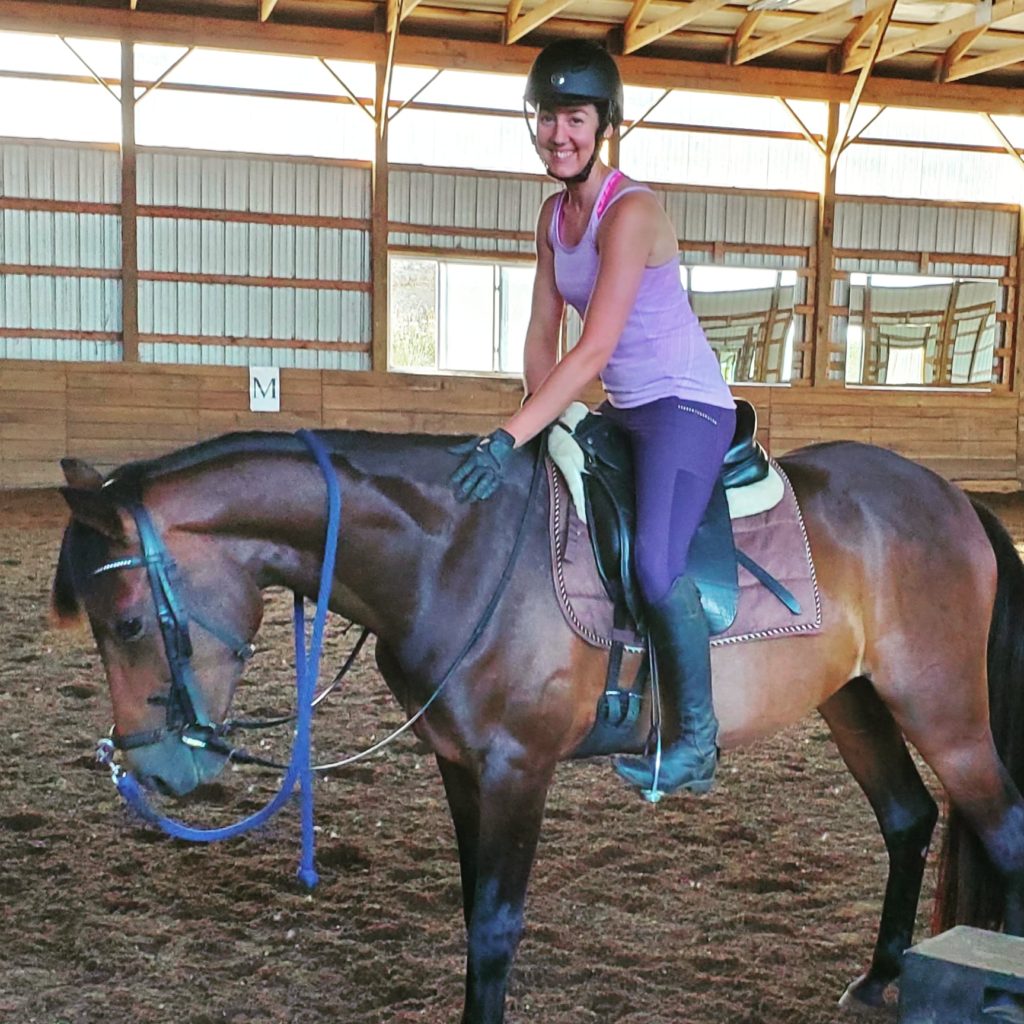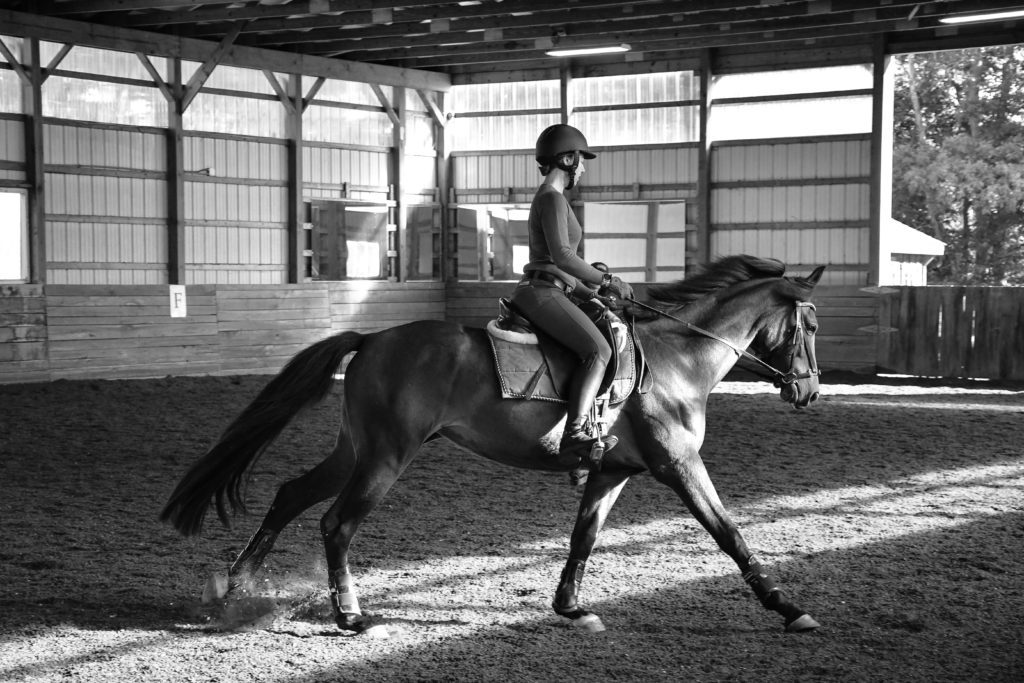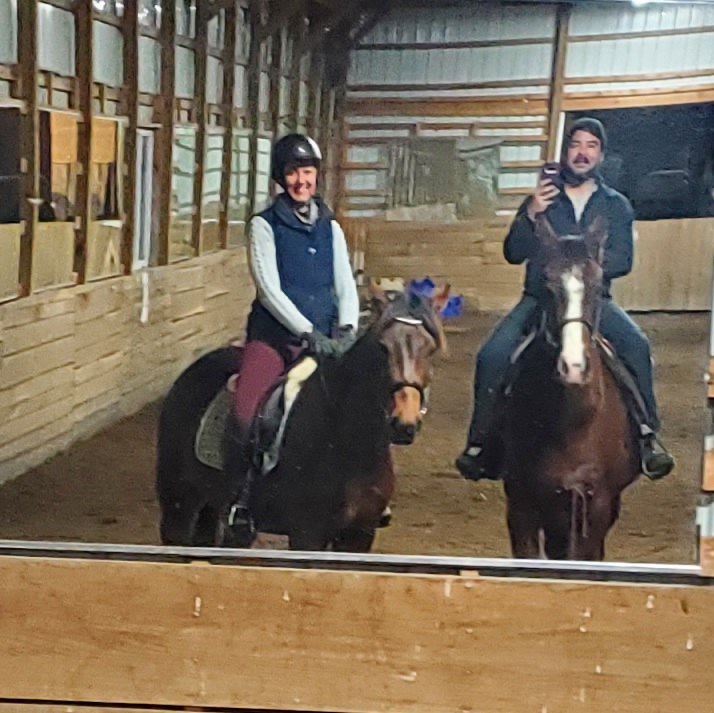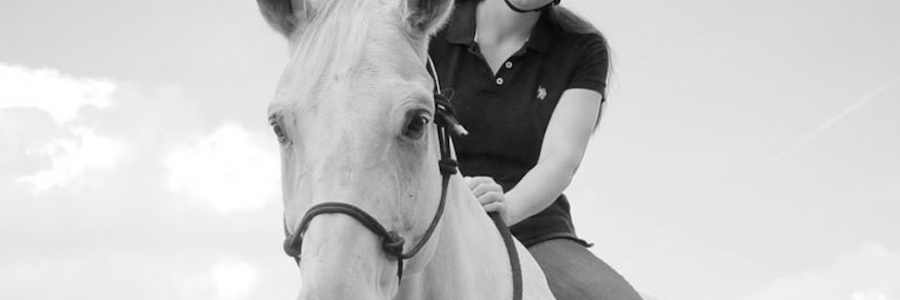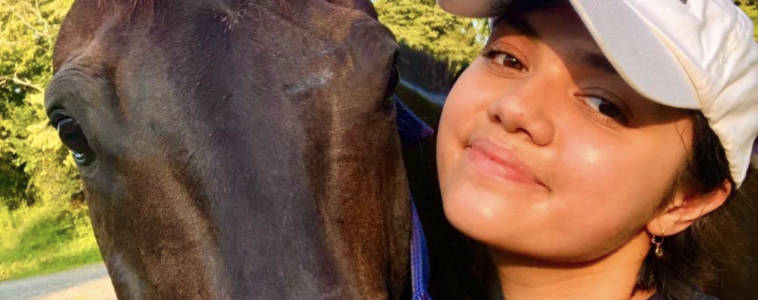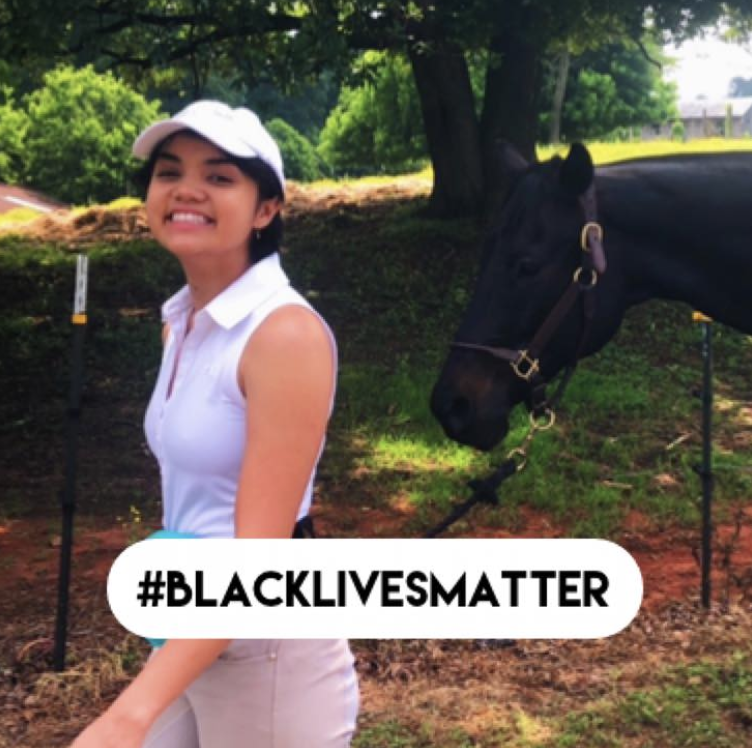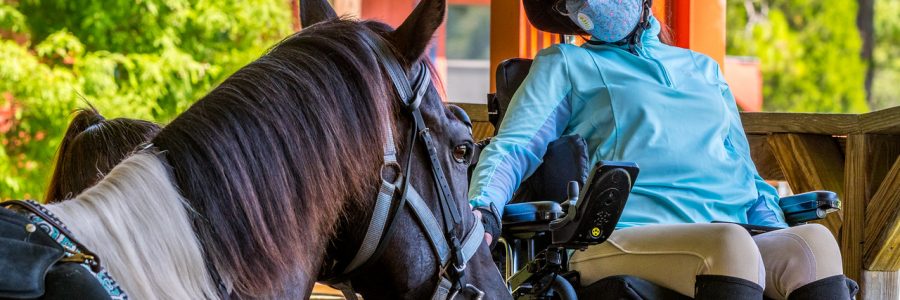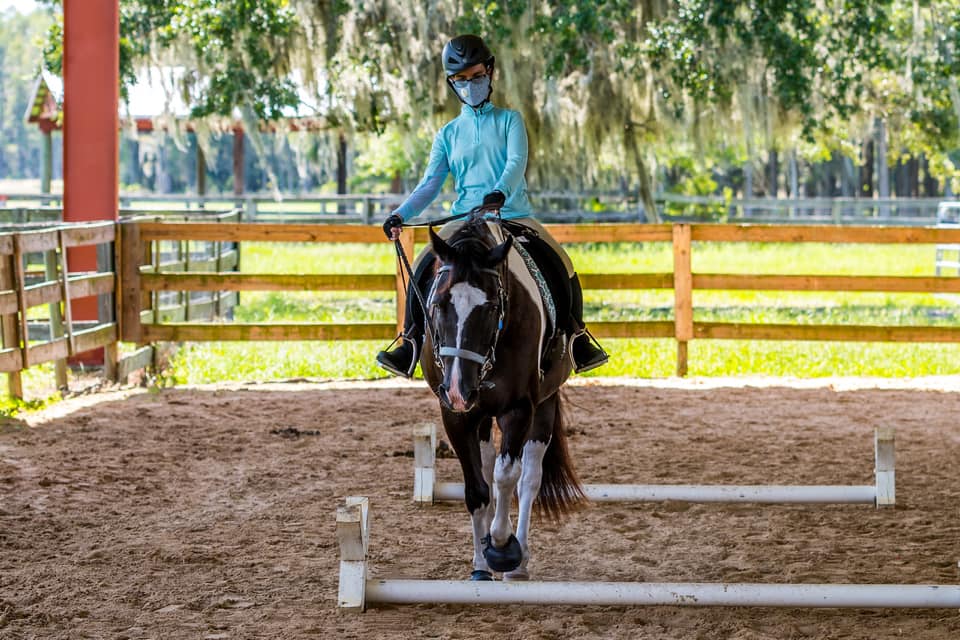My name is Cam Davis, and I am 24-year-old black, queer non-binary person. I have been interested in horses for as long as I can remember, but when it came time for me to first try horseback riding at my friend’s sixth birthday party, I was too scared. I was so disappointed in myself as I watched the other children ride. The adults asked me if I would like another chance, and the moment I tried again, I was absolutely hooked. Never having my own horse growing up, I rode school horses, training horses, and leased when possible. When I was younger, not having a horse made me feel inferior, but so many different horses made me the well-rounded rider I am today.
Horses have helped me through so many challenges. When I was twelve, I was bullied to the point that I considered ending my life to free myself from the unceasing torment. I didn’t trust anyone to tell the severity of my situation, so I turned to horses. As my only escape, horses genuinely saved my life, and I knew that I wanted a career in assisting others through horses. From volunteering at Days End Farm Horse Rescue (DEFHR) and working with three untouched Mustangs, I’ve learned that horses and humans going through hard times have a lot in common. I was diagnosed with bipolar disorder and OCD after five years of struggling through debilitating symptoms. I can empathize with how it feels to be mistreated due to being misunderstood, which helps me connect with difficult horses. Now, I am entering my second year of a Master’s degree in Mental Health Counseling at Johns Hopkins University. My education has been a long, arduous journey, but I’ve persisted in the hopes of becoming the kind of mentor I wish I had growing up.
I was so fortunate that my parents supported my involvement with horses through high school, but when I started college, they believed that I should focus on my academics and were no longer willing to contribute resources to horses. After meticulous research and budget planning, I asked if they would help me pay for what I believed would be the experience of a lifetime: competing in the Extreme Mustang Makeover. In this event, trainers have only around one hundred days to prepare a completely untouched Mustang for an in-hand and ridden show. Since the training would take place over the summer and not conflict with school, my parents agreed.
Unfortunately, my very first Mustang was one that a trainer recommended I put down for being too dangerous. Despite our rocky start and inability to compete, Kovu and I gained each other’s trust to form a remarkable bond. Three years later, I decided to give the Mustang Makeover a second chance without my parent’s support. With three years of Mustang experience, I thought that I would at least improve from the previous time, but it was even more of a nightmare. My new Mustang barely let me touch her. I got the help of two professionals, but nothing worked. I ended up rehoming her to a more experienced trainer and made the heartbreaking decision to send Kovu with her since the two horses had become very close over the course of the summer. I’ll never forget my father’s words when I told him what happened: “Have you learned your lesson?” It was one of the most painful things I had ever heard, and I was also left confused: What lesson? The dangers of not listening to them? The naïveté of trying to follow my dreams?
Regardless, they encouraged me to “find out who I was without horses.” As much as I tried to find myself, I only came to one conclusion: I was a shell of a person without horses. My bipolar depression hit me harder than ever before, and once again, I was thinking of ending my life to escape from the vast emptiness. Finally, I found hope in the form the counseling Master’s program at Johns Hopkins University. The faculty page was full of people of color, and the program emphasized diversity and social justice at every turn. My buried dreams of helping people and horses heal each other came trickling back, and what better environment to learn in than one taught by people who looked like me?
Since then, I became a full-time student and part-time teaching assistant, horse trainer, riding instructor, and freelance illustrator. My teaching assistantship ended in June, and in the fall, I will begin a graduate research assistantship at Hopkins. Feeling a sense of security for the first time in years, I got another dangerous thought at the beginning of this year when the Extreme Mustang Makeover announced they would be holding an event in Logan Township, New Jersey—under three hours from where I live: Was it time to try Mustangs again? I tried blocking the thought as much as I could until I saw an online post from my good friend, Mustang trainer, and international clinician Hannah Catalino. She was holding a summer student program on her Montana farm. I got a wild idea: What if I began training my Mustang under Hannah’s guidance then finished the training on my own? It would be a logistical nightmare. Whitehall, Montana is over 2,000 miles away from where I live and work with horses. Despite the uncertainty, I knew that my past failure with Mustangs would haunt me until I succeeded in my goal, so I took the week-long trip out west.
Under Hannah’s guidance, the Mustang I named Zen has become every bit of the miracle I could have hoped for. Zen and I took on the unique challenge of starting our gentling process at liberty, and I am so grateful that I dared to pursue my dreams one more time. I would not trade this experience for the world, but it does come at a hefty price. It cost $2,494.52 to get Zen and myself to Montana, and the journey east starting August 4th for the remainder of his training and the competition in October will cost me $1,700. While that is nearly triple the scholarship amount, $600 toward transport costs would go a long way in giving me more financial leeway to give Zen critical off-site exposure before the event and help cover the transport costs to the event itself. Training Zen has been so much more than a competition for me. It took a lot of perseverance to push past the fear of failure and disapproval from my parents to enter another Makeover. I am also proud to represent as one of the only—if not the only—black and queer people at the event given the largely white percentage of Mustang enthusiasts. Zen has made me a better person and motivated me to use Mustangs and rescue horses in equine-assisted therapy once I complete my Master’s degree. I am so grateful for the opportunity to apply to this scholarship and am humbled by the work that the Optimum Youth Equestrian Scholarship does to empower and inspire young, marginalized horse people to succeed.
